Have you ever had a book handed to you while being told that it’s just fiction, until you open it up to read and see something that sounds suspiciously autobiographical? Probably not, because it’s not something that happens every time.
Today’s Original Poster (OP) found herself in this position after her brother-in-law who she dated in high school, asked her to read the book he wrote. After seeing that the story hit too close to home, she was left horrified and in a moral dilemma.
More info: Reddit
Imagine your sibling’s spouse giving you their debut novel and realizing halfway through that the “fictional” main character seems to be you

Image credits: freepik / Freepik (not the actual photo)
The author explained that she had a strained relationship with her sister and brother-in-law due to the fact that she used to date him in the past
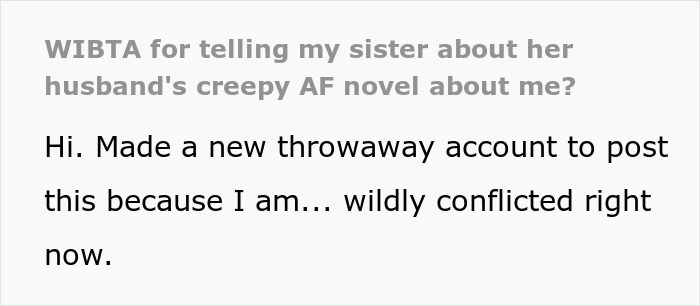
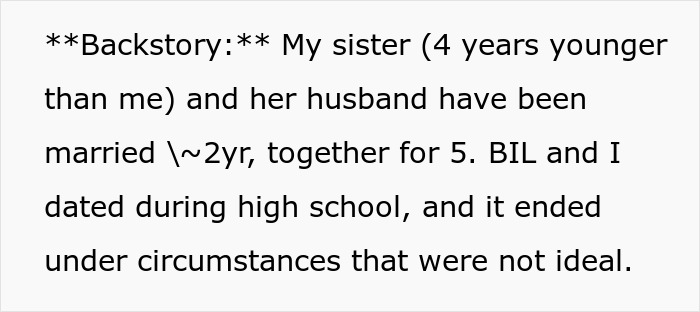
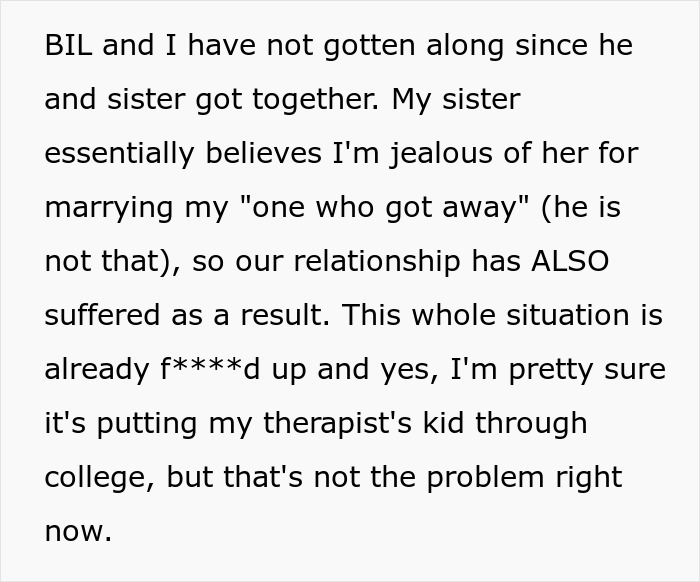
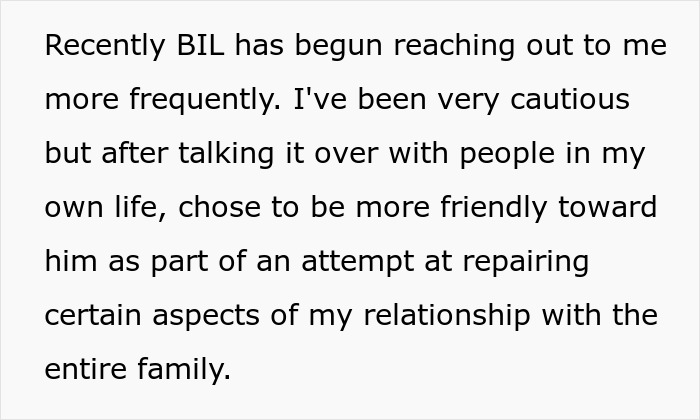
Image credits: wildlyconflictedrn

Image credits: drobotdean / Freepik (not the actual photo)
The brother-in-law suddenly began to reach out more, and she cautiously decided to be friendlier to help repair family ties
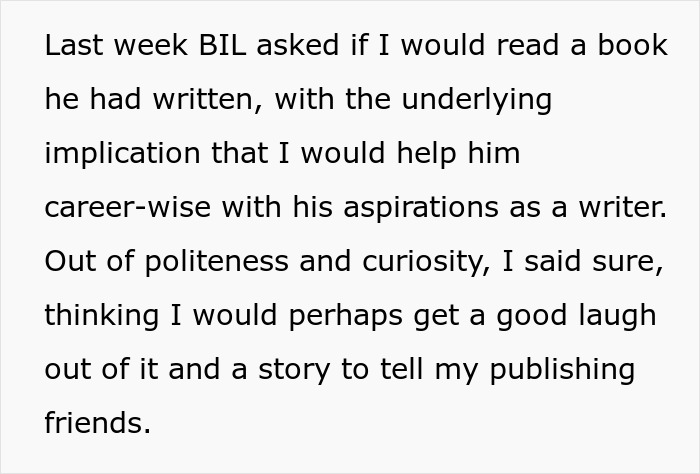
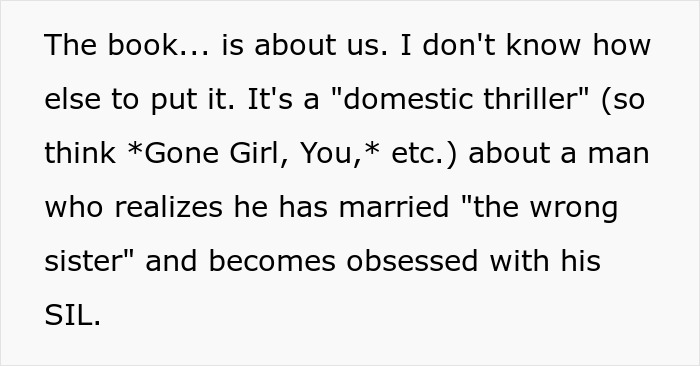
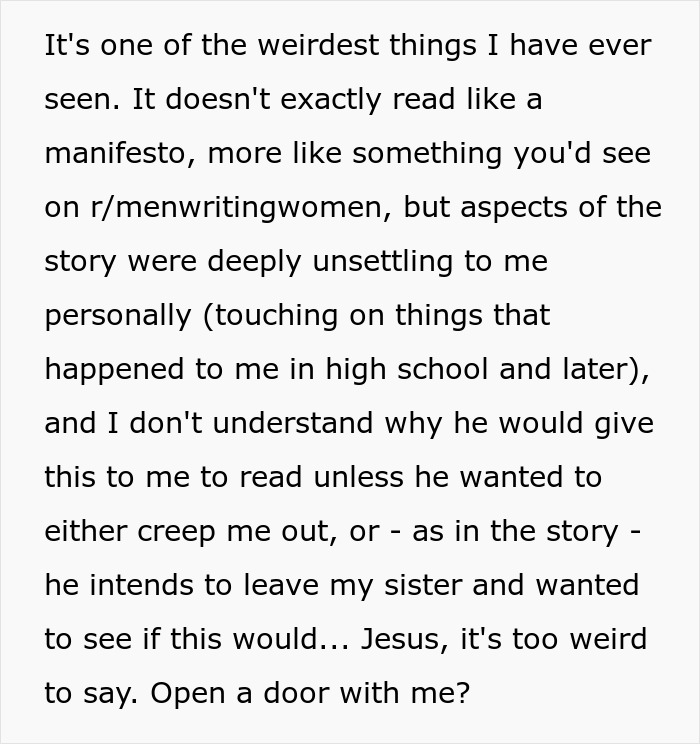
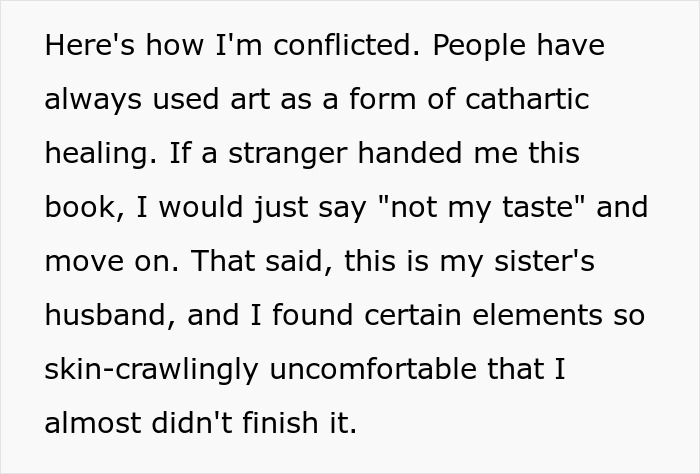
Image credits: wildlyconflictedrn

Image credits: garetsvisual / Freepik (not the actual photo)
One day, he asked her to read a book he wrote, which she agrees to read out of politeness and curiosity
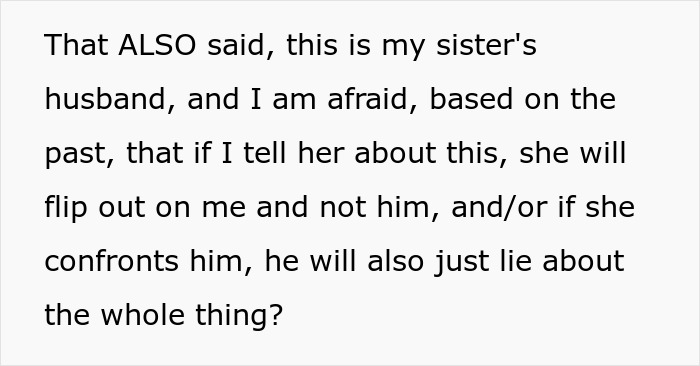

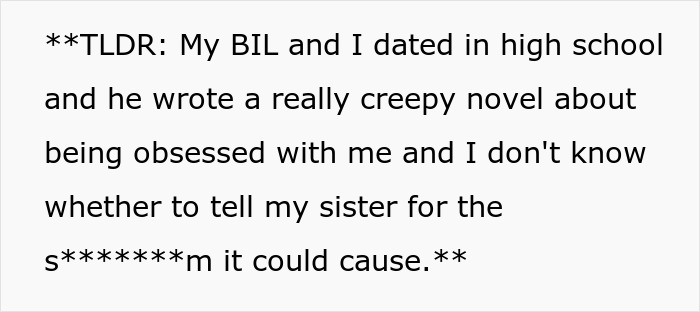

Image credits: wildlyconflictedrn
However, as she read, she discovered the book depicted a man obsessed with his sister-in-law, mirroring real events from her life, leaving her deeply unsettled
The OP admitted that the family dynamic was already a therapist’s dream. She and her brother-in-law had dated as teens, things ended badly, and when he eventually married her younger sister, things got more tense and their relationship strained. According to her sister, the OP was jealous that she ended up with her ex, even though the OP maintained that she wasn’t.
Over the years, the OP decided to mend things, cautiously agreeing to be friendlier toward her brother-in-law, hoping to keep peace within the family. The brother-in-law, aspiring novelist, then asked her to read his new manuscript to which she obliged. She expected something harmless, maybe even laughable, but what she saw shocked her to the core.
The story was a domestic thriller about a man who realized he married the wrong sister and became obsessed with his sister-in-law. What was more horrific was that the story included details eerily close to her real life, and even private events from her past. The OP admitted that if it had come from a stranger, she’d have shrugged it off, but this was too terrifyingly personal.
This then left her stuck in a moral and emotional minefield, wondering whether she should tell her sister and risk looking paranoid, for something that might just be cathartic writing, or say nothing and risk ignoring what might be a red flag.

Image credits: katemangostar / Freepik (not the actual photo)
One possible lens to understand this behavior is cathartic writing which is a form of emotional release achieved through writing. According to author Nathan Bransford, it involves freely expressing strong emotions without self-censorship, allowing the writer to process and make sense of inner turmoil in a safe, controlled way.
However, Verywell Mind acknowledges that cathartic writing could slip into harmful writing if not controlled. They explain that the difference lies in intent, impact, and ethics, and that while cathartic writing helps authors process emotions and eventually find relief, harmful writing uses others’ experiences without consent, which can cause emotional harm or reinforce negative patterns.
They also note that while ethical cathartic writing respects privacy, sensitivity, and consent, harmful writing prioritizes the writer’s self-interest over others’ dignity. Ultimately, cathartic writing brings about healing and growth, whereas exploitative writing risks deepening wounds or perpetuating harm.
In the context of the OP’s story, Gather & Ground advises setting firm boundaries to protect one’s safety and well-being while using de-escalation techniques like measured responses to diffuse tension. They also suggest that recognizing how different family members perceive threats can also guide more empathetic communication.
Netizens agreed that the OP was very justified in feeling unsettled by her brother-in-law’s book. They noted her already strained relationship with her sister and the unusual nature of the situation, and suggested addressing the issue carefully either by speaking directly to the brother-in-law or taking steps to protect herself, rather than immediately confronting her sister.
What do you think about this situation? Do you think this is just “fictional catharsis”, or is it a serious red flag? We would love to know your thoughts!
Netizens agreed the situation was bizarre and that while it was alarming, it might take years to fully untangle
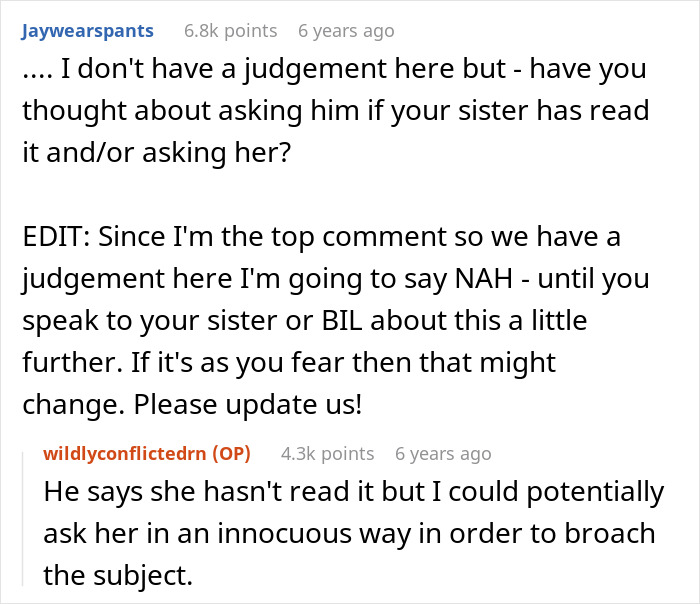


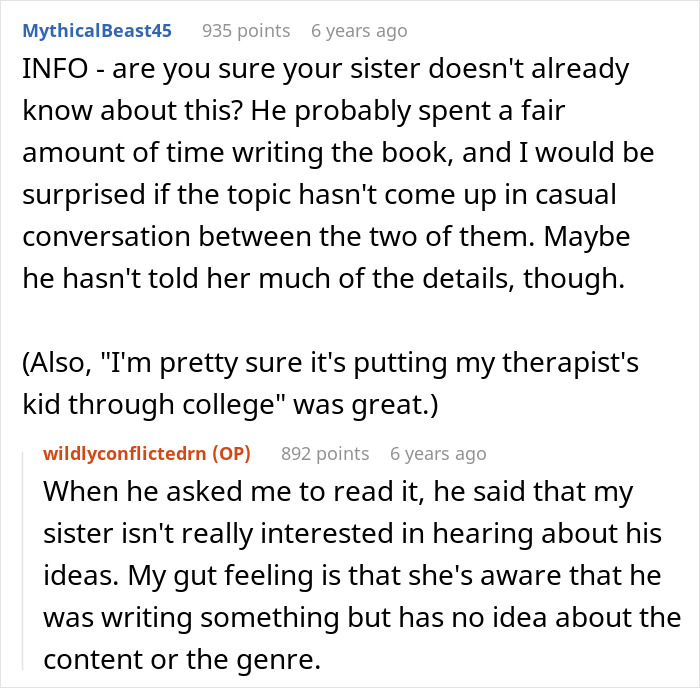
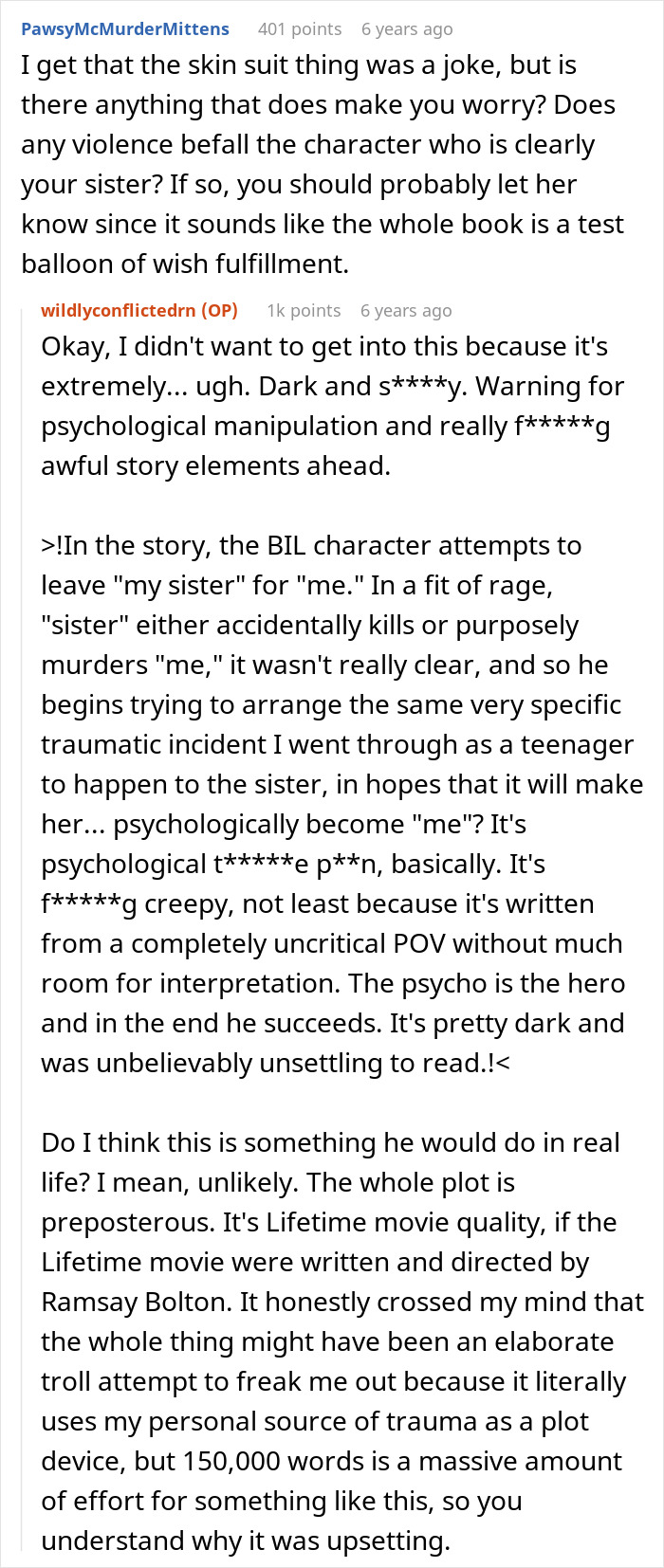

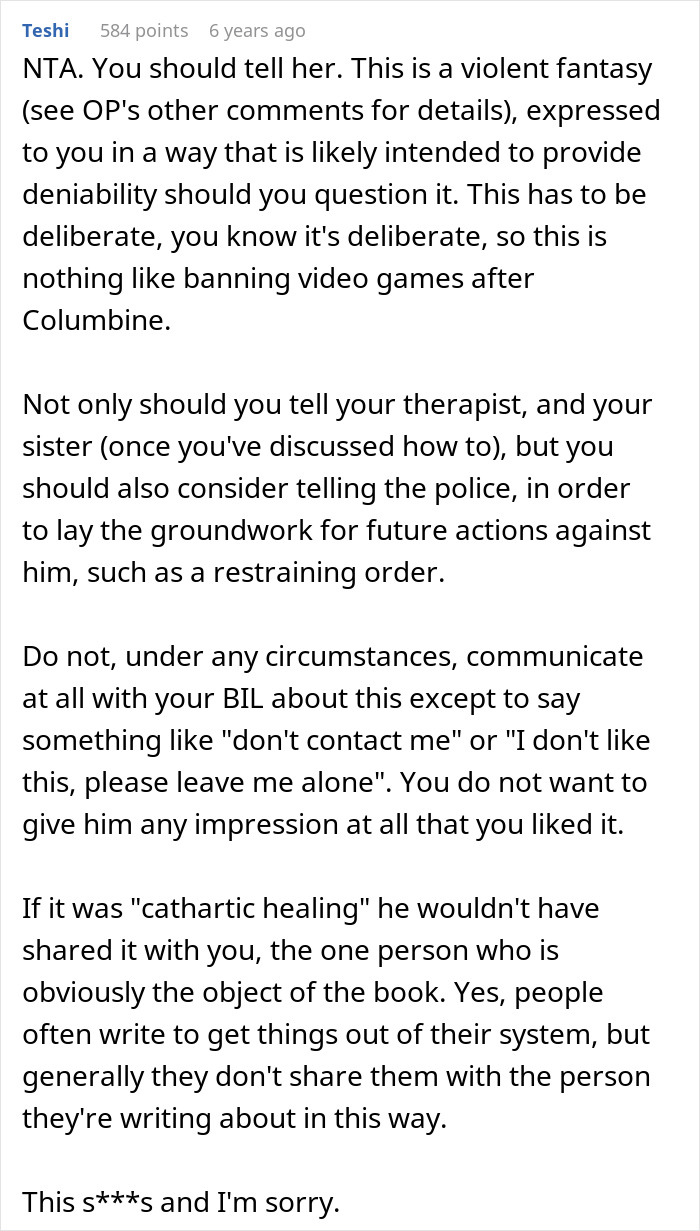
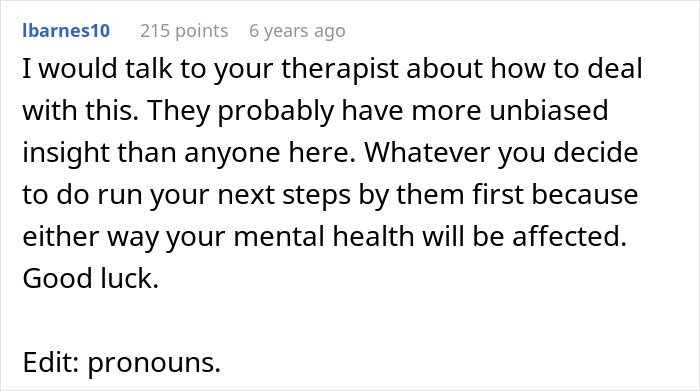
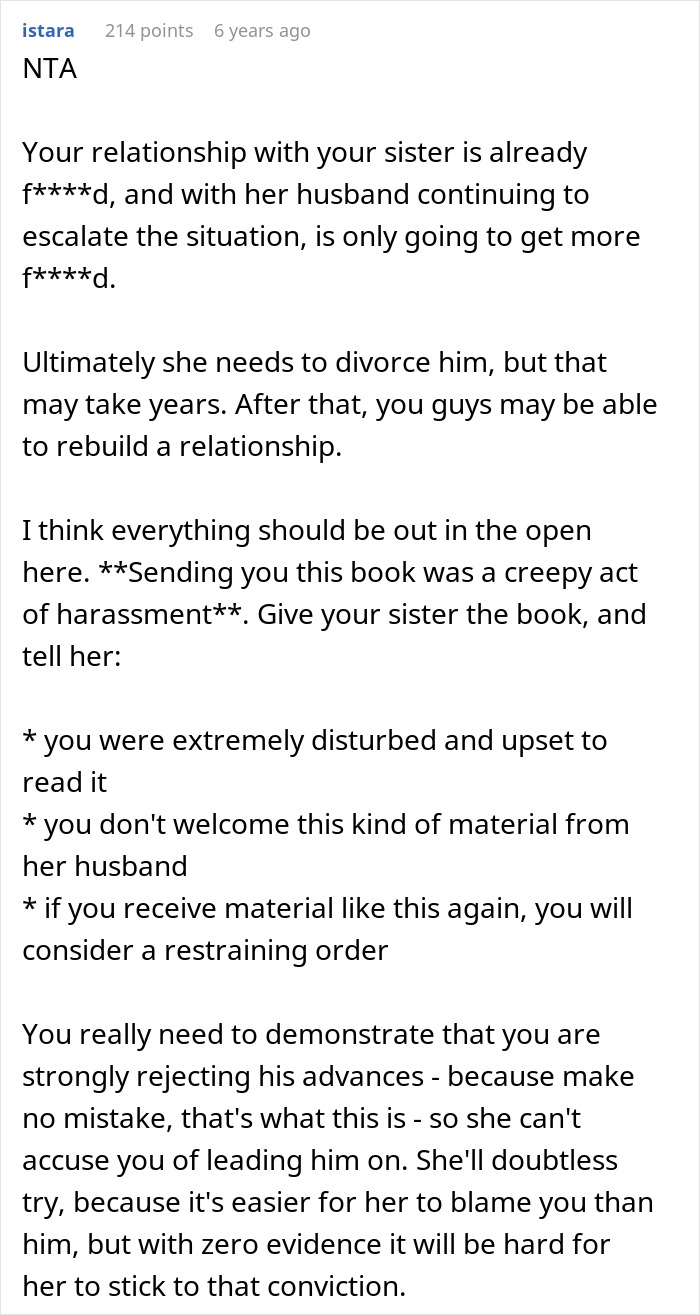
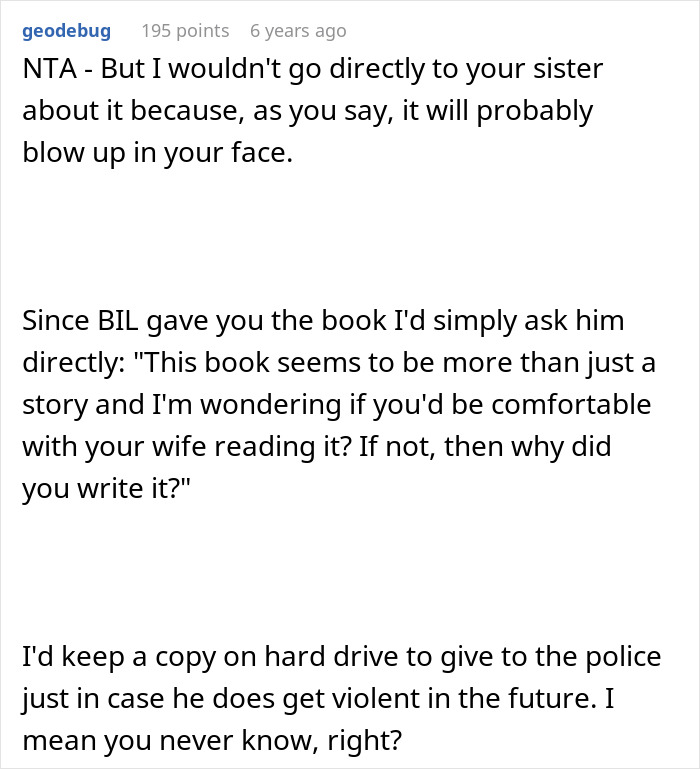
 Follow Us
Follow Us





